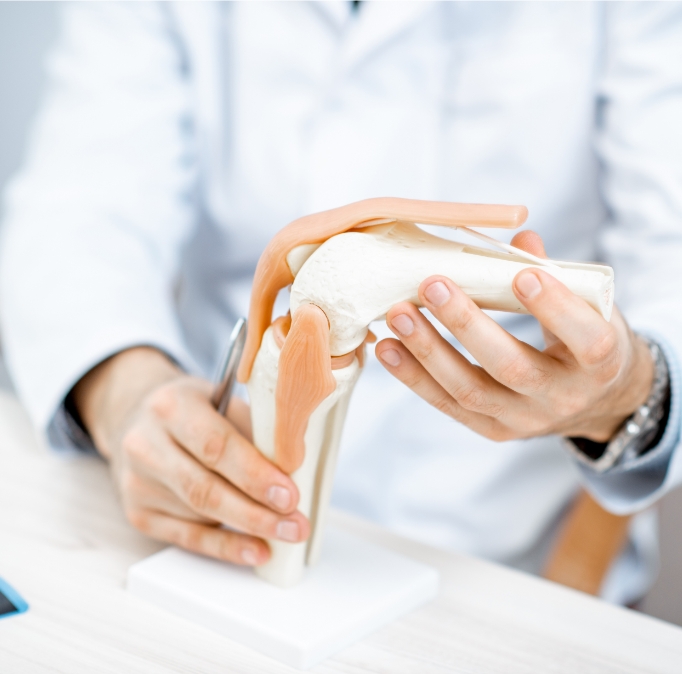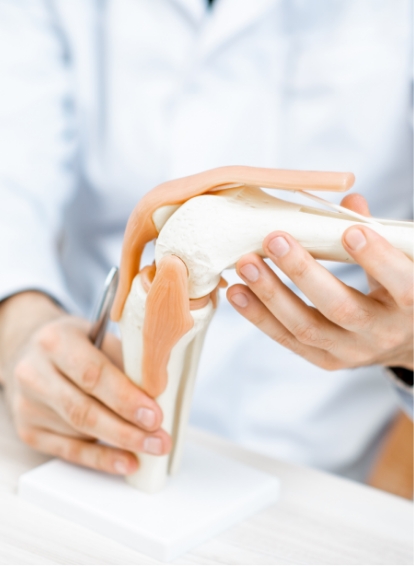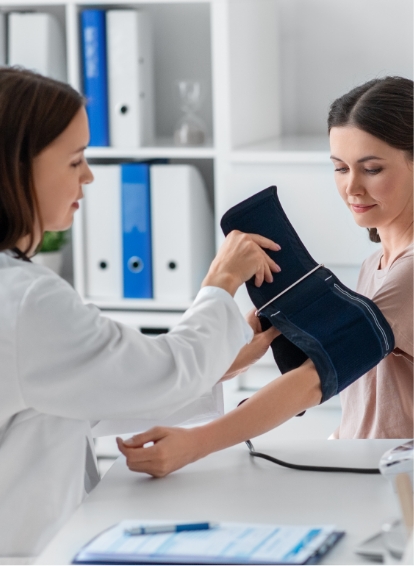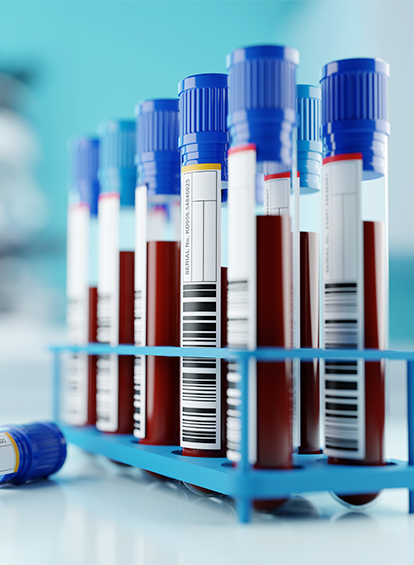Sports & Non-Surgical Orthopaedic Treatments
Back Pain
Back pain is one of the most common musculoskeletal conditions, affecting millions of people and impacting daily activities, work, and overall quality of life. This pain can range from a dull ache to sharp, severe discomfort and may be caused by a variety of conditions affecting the muscles, ligaments, discs, and bones in the back.
At The Clinica our Consultant in Sports Medicine and Minimally Invasive Orthopaedics will work on understanding the root cause of your back pain and will provide personalised, non-invasive treatments to relieve pain and restore mobility.

What is it?
Back pain is a general term for discomfort or pain in the back, which can be caused by various factors such as muscle strain, ligament sprain, spinal misalignment, or degenerative conditions. Back pain can be classified as either acute, lasting for a few days to weeks, or chronic, lasting for three months or longer. It can affect any area of the back, but is most commonly experienced in the lower back, which bears much of the body’s weight and is prone to stress and strain.
Back pain is often the result of poor posture, sudden movements, or repetitive strain. For some individuals, structural issues such as herniated discs, spinal stenosis, or arthritis may be the cause, resulting in ongoing pain that limits movement. In certain cases, conditions affecting other areas, such as the hips, may cause referred pain to the back, further complicating diagnosis and treatment.
Identifying the exact cause of back pain is crucial to effective treatment, as back pain can stem from multiple sources. Understanding whether it originates from muscular, structural, or neurological issues helps in developing an appropriate treatment plan to provide long-lasting relief.
Book an appointment
Additional Information

Causes of the condition
Back pain can arise from various causes, with muscle and ligament strain being one of the most common reasons. Heavy lifting, sudden movements, or poor posture can overstretch or injure muscles and ligaments, leading to acute pain and restricted movement. Repetitive strain over time may lead to chronic back pain, especially in individuals who work in physically demanding jobs or lead sedentary lifestyles.
Degenerative conditions, such as osteoarthritis and spinal disc degeneration, are also significant contributors to back pain, particularly in older adults. As we age, the discs in the spine lose hydration and flexibility, making them more susceptible to herniation or bulging. Other structural causes include conditions like spinal stenosis, which compresses nerves in the spinal column, resulting in pain, numbness, or weakness.
In some cases, psychological stress can exacerbate back pain by causing muscle tension and affecting posture. Additional contributing factors include obesity, lack of exercise, and certain medical conditions, which place added stress on the back.
Tests that can be done to confirm the condition
Diagnosing back pain typically involves a physical examination and a review of your medical history. During the examination, your clinician will assess your range of motion, muscle strength, and any areas of tenderness. They may also perform specific tests to pinpoint the source of pain, whether it is muscular, skeletal, or neurological.
Imaging tests, such as X-rays, MRI, or CT scans, may be recommended to provide detailed insights into the spine’s structure and any abnormalities. X-rays can reveal alignment issues and bone fractures, while MRI and CT scans offer a clearer view of soft tissues, including discs and nerves, helping to identify herniated discs, spinal stenosis, or other structural problems that may be causing pain.
Effective treatments
Treatment for back pain often combines lifestyle adjustments, physical therapy, and, if needed, minimally invasive treatments to relieve pain and restore mobility. Rest and gentle stretching exercises can alleviate pain and prevent further strain. Avoiding prolonged sitting, heavy lifting, and improper posture is essential for reducing the risk of re-injury.
Physical therapy is a cornerstone of back pain treatment, focusing on strengthening core and back muscles, improving flexibility, and enhancing posture. A structured exercise program can significantly reduce pain and prevent recurrence by supporting the spine and correcting muscle imbalances. Non-surgical treatments, such as epidural steroid injections or nerve blocks, may be recommended for persistent pain. These injections provide targeted pain relief by reducing inflammation around irritated nerves.
In cases where conservative treatments are not sufficient, minimally invasive procedures, such as radiofrequency ablation or spinal decompression, may be considered. These treatments are designed to relieve pressure on the nerves and improve overall spine function, allowing patients to return to their daily routines with minimal discomfort.
Book an appointment for an initial consultation
Booking an initial consultation at The Clinica is the first step in identifying and treating back pain. During this consultation, our specialist will conduct a thorough evaluation, discuss your symptoms, and review your medical history to determine potential causes of your pain. This assessment includes checking for movement limitations, tenderness, and any spinal alignment issues.
If needed, imaging tests will be arranged to confirm the diagnosis and assess the extent of any underlying conditions. Following this, a personalised treatment plan will be developed to target the root cause of the pain and support long-term back health.
Frequently Asked questions
Yes, most cases of back pain can be managed effectively with non-surgical treatments like physical therapy, injections, and lifestyle changes. Surgery is usually considered only if other treatments fail.
Recovery times vary depending on the cause and severity of the pain. Some patients experience improvement within weeks, while chronic conditions may take months to manage effectively.
Yes, injections like epidural steroids and nerve blocks are generally safe and provide targeted pain relief. Your clinician will discuss any potential risks based on your specific condition.
Gentle stretches, core strengthening exercises, and low-impact activities like walking and swimming are beneficial for relieving back pain. Your specialist can provide a personalised exercise plan.
Maintaining a healthy weight, practicing good posture, and regular exercise can help prevent back pain. Proper lifting techniques and ergonomic practices are also beneficial.
Specialised Clinics
General Enquiries
Please send your enquiry to us and our Practice Manager will be in touch shortly. Alternatively, if you would rather speak to us or your enquiry requires our urgent attention, please call us on 01344 946363.








